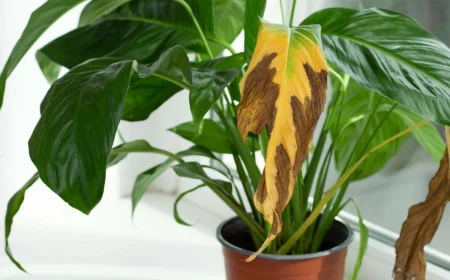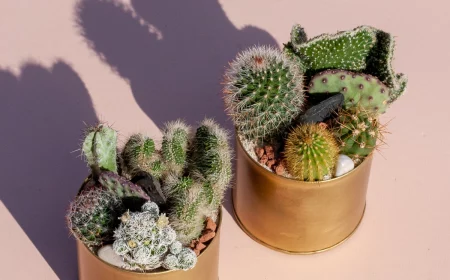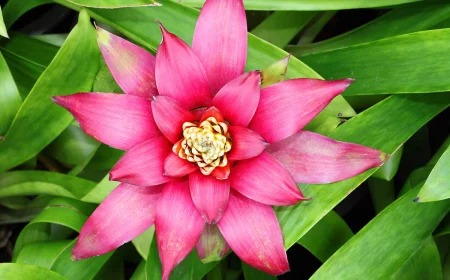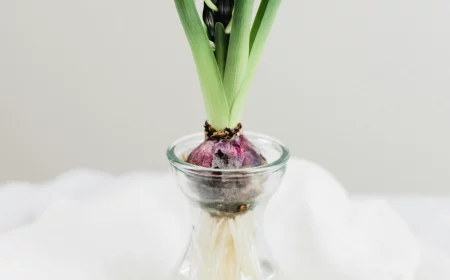Your Rose Succulent Isn’t Dying, It’s Just Sleeping: A Real-World Guide
You know, in all my years growing succulents, there’s one plant that sends more people into a panic than any other. They’ll bring me this little plant, which they call a rose succulent, and it’s closed up into a tight, brownish, sad-looking ball. They’re almost always convinced it’s dying.
In this article
Here’s the secret: more often than not, the plant isn’t dying. It’s just sleeping. And understanding that is honestly the most important lesson you can learn about caring for these incredible plants.
First off, these aren’t actually tiny roses, and they’re not the super common succulents you see at every big-box store. Their unique nature is what makes them so special, but it also means they play by a different set of rules. Most succulents you know and love are summer growers. This one? It does the complete opposite. Its entire life is built around the cycle of its native island habitat—a place with mild, damp winters and brutally hot, dry summers. If you try to fight that natural rhythm, you’re going to have a bad time. But if you work with it, you get rewarded with one of the most stunning, architectural plants you can own.

Understanding the Two Seasons of Your Rose Succulent
To really get this plant, you have to think about its two distinct phases. It’s not just spring, summer, fall, winter; for this guy, it’s more like Go Time and Sleepy Time.
Autumn and Winter is Go Time (The Growing Season). This is when the plant is wide awake. In its natural home, this is the rainy season with mild temperatures. Your plant will open up its ‘petals’ to soak in as much light as possible, looking like a perfect green rose. This is when it’s actively growing, pushing out new leaves and maybe even some baby plants, or ‘pups’, around its base. Your job during this phase is to provide water and light so it can thrive.
Then comes Summer… which is Sleepy Time (Dormancy). As the weather gets hot and the days get long, the plant goes into survival mode. It closes up its leaves into that tight ball I was talking about. This is a brilliant defense mechanism that protects its delicate center from the harsh sun and dramatically reduces water loss. The outer leaves might even get dry and crispy, acting like an extra layer of insulation. When people see this, they freak out and start watering it like crazy. This is the single biggest mistake you can make, and it will rot the dormant roots right off.

So, that tight, brownish ball isn’t a cry for help. It’s a sign of a healthy plant doing exactly what it’s supposed to do.
Let’s Get You Started: A Quick Shopping List
Before we get into the nitty-gritty, let’s talk about what you’ll actually need. It’s not a long list, and getting the right stuff from the start saves a ton of headaches.
- The Plant Itself: You’ll likely find these online from specialty succulent nurseries or sellers on Etsy. They aren’t usually at your local garden center. Expect to pay anywhere from $15 to $30 for a nice, healthy starter plant.
- A Terracotta Pot: A simple 4-inch unglazed terracotta pot is perfect. It breathes, which helps prevent root rot. You can grab one for just $3 to $7.
- Pumice: This is for your soil mix. You probably won’t find the right kind at a big-box store. Check online succulent suppliers, Bonsai specialty shops, or even a local farm supply store. A good-sized bag that will last forever costs about $15 to $25.
- Coconut Coir or Peat-Free Compost: This holds a little moisture. A compressed brick of coir is cheap, maybe $5 to $10, and expands with water to make a ton of material.

Getting the Foundation Right: Soil and Potting
A plant’s health starts below the surface. For a rose succulent, the soil has to drain ridiculously fast. I’m not kidding—that standard potting mix in a bag is a death sentence. It holds way too much water, suffocates the roots, and basically invites rot to the party.
After years of trial and error, I’ve landed on a soil mix that these guys love. It’s cheaper to mix your own, and it’s so much better for the plant.
My Go-To Soil Recipe:
- Two parts pumice or small lava rock (about 1/4-inch size): This is the most important part. It creates air pockets so roots can breathe and water can drain away instantly.
- One part coarse sand: Make sure it’s horticultural sand, not fine play sand.
- One part coconut coir: This holds just enough moisture and nutrients for the roots to grab between waterings.
Mix it all together. When you grab a handful and squeeze, it should feel gritty and fall apart easily. It should never clump up. Heads up for beginners: If you don’t want to source all that, a simple 1-to-1 mix of store-bought cactus soil and pumice is a huge step up from using the cactus soil by itself.

As for the pot, the number one rule is that it must have a drainage hole. No exceptions. If you find a cute pot without one, either get brave and drill a hole or use it as a decorative outer pot for the real (drilled) pot inside. A pot that’s just an inch or two wider than the plant is perfect.
Watering: How Not to Kill Your Plant
Okay, lean in, because this is where I made a mistake that killed one of my absolute favorite plants years ago. I treated it like my other succulents in the summer, and it rotted from the inside out. It was a painful but valuable lesson.
Do not water on a schedule. Ever. You need to water based on the plant’s needs, which means you have to learn the ‘soak and dry’ method. When it’s time to water, drench the soil completely until water pours out the bottom. Then—and this is the important part—do not water again until the soil is 100% dry all the way through. You can test this by sticking a wooden chopstick deep into the pot. If it comes out with damp soil stuck to it, wait. If it comes out clean and dry, it’s time to water.

Here’s how that changes with the seasons:
- During the Growing Season (Autumn/Winter): Use the soak and dry method. Depending on your home’s climate, this could be every 2-4 weeks. The plant is thirsty and growing.
- During Dormancy (Summer): This is the danger zone. The sleeping plant needs very little water. I give mine maybe once a month, and I mean a tiny amount. For a plant in a 4-inch pot, I’m talking about 2-3 tablespoons of water, poured just around the base. The goal isn’t to soak the soil; it’s just to keep the tiniest, finest roots from turning to dust. Heavy watering now is the fastest way to kill it.
Light, Food, and General Upkeep
These plants need what I’d call ‘bright but gentle’ light. Think of an east-facing window that gets a few hours of direct morning sun. Harsh, direct afternoon sun will scorch them. If you don’t have enough natural light, a simple LED grow light set 6-12 inches above the plant for about 12 hours a day works wonders and keeps them from stretching out.

As for food, they’re light eaters. I only fertilize during the growing season (fall and winter), using a balanced liquid fertilizer diluted to quarter-strength, and only about once a month. Easy does it.
You’ll also want to gently pull off any old, dried-up lower leaves. This keeps the plant looking tidy and removes hiding spots for pests like mealybugs. If you see those little white fuzzy spots, a quick spray of 70% isopropyl alcohol will sort them out.
A quick tip: I quarantine every single new plant I bring home for at least a month. I keep it separate from my main collection and inspect it closely. This one simple habit has saved me from a full-blown pest infestation more times than I can count.
Troubleshooting: What to Do When Things Look Weird
- Problem: The plant is tall, pale, and the leaves are spread far apart.
Solution: It’s stretching for light. The stretched part won’t shrink back, so your best bet is to move it to a brighter spot and ‘behead’ the top rosette. Let the head callous over for a few days, then set it on fresh soil to re-root. - Problem: The lower leaves are yellow and mushy.
Solution: Classic overwatering. This is a plant emergency. Unpot it immediately, cut off any black, mushy roots, and pray. If the top is still good, you can try to save it as a cutting. - Problem: Dry, brown, or black spots on the leaves.
Solution: Sunburn. The marks are permanent, but the plant will be fine. Just move it to a spot with less intense sun. - Problem: It’s a tight, closed, brownish ball in the middle of summer.
Solution: DO NOTHING! I know it looks dead! I get it. But this is a perfectly healthy, dormant plant. Just trust the process. Mark your calendar for autumn, and you’ll see it start to wake up and transform.
Honestly, caring for a rose succulent teaches you to be a better plant parent. It forces you to observe and respond instead of just following a rigid schedule. Don’t be afraid of making mistakes—every dead plant is a lesson. By giving it the right conditions and, most importantly, respecting its summer nap, you’ll get to enjoy this beautiful and strange little plant for years to come.

Galerie d’inspiration


What’s the secret to a happy rose succulent beyond watering?
It’s all in the soil. These Canary Island natives despise “wet feet” and require exceptionally fast-draining soil to mimic their volcanic origins. A standard cactus mix is often too dense. For a perfect DIY blend, combine one part potting soil with two parts gritty material like pumice, coarse sand, or perlite. If you prefer a ready-made solution, a specialized mix like Bonsai Jack’s Gritty Mix #111 is an excellent choice that provides the sharp drainage and aeration these beauties crave, especially during their winter growing season.

The ‘rose’ shape isn’t just for looks; it’s a masterclass in water conservation, channeling every drop of dew or rain towards the plant’s core.
To celebrate this natural architecture, consider your container. Instead of a crowded arrangement, plant a single rose succulent or a small cluster in a wide, shallow terracotta bowl, like the ‘Helena’ pot from Bergs Potter. The low-profile dish puts the focus entirely on the plant’s sculptural form, turning it into a living work of art.
When your rose succulent is in its active, open state, you might notice something unwelcome tucked between its leaves. Don’t let these common issues derail your success:
- Fuzzy White Spots: These are mealybugs. Dab them directly with a cotton swab dipped in 70% isopropyl alcohol. It dissolves their protective coating instantly.
- Stretching or ‘Etiolation’: If your open ‘rose’ starts to look long and leggy, it’s begging for more light. Gradually move it to a brighter location to encourage a tight, compact rosette.










